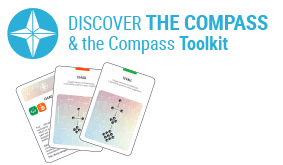Massive Open Online Courses: promoting decent work at a scale
/On September 23rd, ITCILO’s Jobs for Peace and Resilience Training Programme jointly with the ILO’s Coordination Support Unit for Peace and Resilience released the first Massive Open Online Course (MOOC) about ILO’s Recommendation No. 205.
ILO’s Recommendation No. 205 on Employment and Decent Work for Peace and Resilience (2017) is the only international normative framework providing guidance for addressing world-of-work issues in response to crisis situations, including armed conflict, natural disaster, environmental degradation, and forced displacement.
Counting more than 600 registered participants, the MOOC aims to be a global awareness-raising tool about policies, approaches, tools, methods and case studies, which can be used to promote employment, and decent work measures that prevent crises, enable recovery, and build peace and resilience.
Watch on ILO’s YouTube the Opening Note by Sangheon LEE, the Director of the Employment Policy Department (EMPLOYMENT) of the ILO which leads ILO’s action for promoting full and productive employment by developing integrated employment, development and skills policies.
If you wish to join the global conversation, enrolment deadline is tomorrow 04 October! Link to register.
What are the opportunities of MOOCs?

If you want to use MOOCs for the world of work and promote decent work at a larger scale, we are delivering an online course on the benefits and opportunities of Open Online Education.
Join ITCILO online lab in October http://bit.ly/itcilo
ITCILO’s experience
This is not the first time that ITCILO and ILO are using Massive Open Online Courses to target government officials, ILO’s constituents, partners and staff, and development practitioners to open up the conversation on employment and decent work at a global scale.
Between 2016 and 2019, ITCILO released the following MOOCs which contributed to promoting decent work at a scale:

















